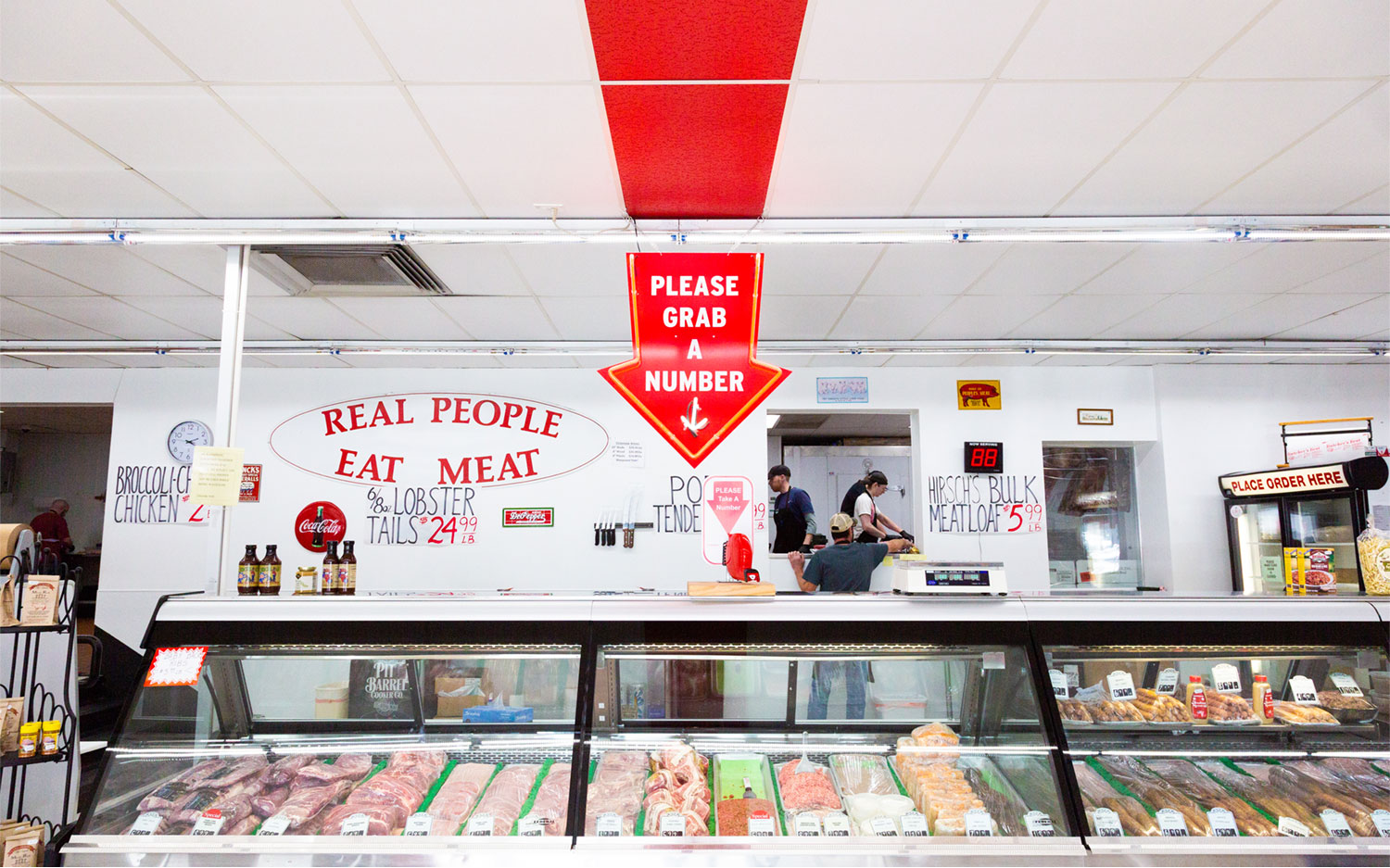Why Buying at a Neighborhood Meat Market Guarantees Fresh, High-Quality Cuts
Shopping at a regional meat market uses unique advantages that often go undetected by customers accustomed to larger retail chains. These markets give direct accessibility to fresh, top notch cuts, an outcome of lessened transport time from ranch to respond to. This not just boosts flavor however likewise sustains neighborhood farmers, promoting community partnerships and sustainable techniques. Moreover, extensive top quality control determines make certain that each acquisition fulfills high standards of safety and freshness (bagley meat market edwardsville il). Yet, the ramifications of choosing local extend beyond immediate advantages, motivating a closer examination of what this choice genuinely indicates for both customers and the local economy.
Benefits of Local Sourcing
In the realm of food purchase, the benefits of local sourcing stick out prominently. By acquiring meat from local markets, consumers acquire direct access to items that are usually fresher and extra delicious than those found in bigger, commercial grocery stores. Regional sourcing reduces the moment and distance food takes a trip from farm to table, which not just improves preference however likewise preserves nutritional value.

Additionally, local sourcing typically gives transparency regarding the origins of the meat. Consumers can ask about the farming practices used, pet welfare requirements, and whether the meat is organic or grass-fed. This information encourages consumers to make educated decisions aligned with their worths.
Quality Control Criteria
Neighborhood meat markets usually follow strenuous quality assurance requirements that make certain the items supplied fulfill high safety and quality criteria. These standards commonly include different stages of the meat production process, from sourcing to taking care of and storage space.
First, regional markets often establish rigid vendor standards, making sure that just respectable ranches and producers are used - bagley meat market edwardsville il. This decreases the likelihood of contamination and promotes greater animal welfare requirements. Furthermore, lots of neighborhood meat markets implement routine inspections to validate that the meat is processed under hygienic conditions, further minimizing health dangers
Temperature level control is one more vital element of quality control. Neighborhood meat markets regularly keep track of refrigeration systems to preserve optimal storage space temperature levels, making certain that meat remains safe and fresh for intake. The implementation of traceability systems allows markets to track the origin of their items, providing openness and liability.
Last but not least, staff at regional meat markets are typically educated to recognize indicators of wasting and comprehend appropriate handling methods. This commitment to top quality control not just raises the general standard of the meat yet additionally cultivates customer trust fund, making neighborhood meat markets a trusted source for high-quality cuts.
Sustaining Regional Farmers
Supporting local farmers is necessary for promoting a sustainable food system and enhancing area durability. They directly add to the resources of farmers in their area her explanation when customers choose to go shopping at local meat markets. This not just sustains the regional economic climate but likewise enhances the agricultural sector, ensuring that it remains lively and sensible.


Furthermore, supporting regional farmers promotes a feeling of neighborhood and connection in between manufacturers and customers. It motivates openness in food sourcing and instills trust, as customers can develop connections with the individuals who elevate their food. This straight link inevitably brings about a more involved and informed public, which is essential for advocating for sustainable agricultural practices in the future.
Lasting Practices
Lasting practices in meat markets play a vital function in promoting environmental stewardship and guaranteeing pet well-being. Neighborhood meat markets usually focus on sourcing their items from farms that execute sustainable and moral farming approaches. These methods include rotational grazing, which helps preserve dirt wellness and minimizes carbon discharges, alongside reducing making use of prescription antibiotics and hormonal agents in livestock.
Furthermore, local meat markets commonly highlight transparency in their supply chains. Consumers are given with info concerning the beginning of their meat, enabling them to make informed selections that align with their values. By sustaining local farmers that practice lasting approaches, customers add to the preservation of biodiversity and the decrease of transportation exhausts related to long-distance meat circulation.
Additionally, many neighborhood meat markets participate in site link waste decrease strategies, such as making use of every component of the pet and advertising off-cuts that might otherwise go unsold. By cultivating a much more lasting method to meat usage, these markets not only supply premium items but additionally contribute favorably to the atmosphere and pet welfare. Basically, buying at a regional meat market straightens customers with a wider motion in the direction of accountable and moral food sourcing.
Individualized Client Service
Purchasing at a meat market typically incorporates more than just the items used; it is likewise concerning the experience and the partnerships built between clients and team. Personalized customer support is a hallmark of local meat markets, setting them besides bigger grocery chains. Experienced staff take the time to comprehend private consumer choices, making certain that each see is tailored to particular requirements.
Clients take advantage of skilled guidance on cuts, cooking approaches, and prep work pointers, cultivating a feeling of trust fund and loyalty. This tailored communication permits consumers to ask concerns and look for suggestions, resulting in notified purchasing decisions. Personnel usually bear in mind regular consumers and their preferences, producing a welcoming ambience that cultivates community ties.
Moreover, personalized solution includes special requests, such as custom-made cuts or details prep work techniques, which larger stores might not fit. This degree of attention enhances the commitment of neighborhood meat markets to high quality and customer satisfaction.
Basically, individualized client service not just improves the shopping experience but additionally makes certain that clients leave with the very best products suited to their cooking needs, making every visit a rewarding one.
Verdict
Sustaining neighborhood farmers fosters neighborhood partnerships and enhances the local economic situation, while sustainable practices contribute to ecological stewardship. In addition, personalized customer solution improves the purchasing experience, making neighborhood meat markets a recommended choice for consumers looking for both quality and honest factors to consider in their food sourcing.
The effects of choosing local extend beyond immediate advantages, triggering a better assessment of what this option genuinely indicates for both customers and the local economy.
Sustaining neighborhood meat markets likewise adds to the regional economic climate. Regional meat markets regularly keep track of refrigeration systems to preserve optimal storage temperatures, ensuring that meat continues to be fresh and risk-free for over here consumption.Local farmers are frequently more attuned to the specific needs of their areas, raising and expanding plants animals that line up with local tastes and choices. Supporting neighborhood farmers cultivates neighborhood relationships and strengthens the neighborhood economy, while sustainable practices add to ecological stewardship.